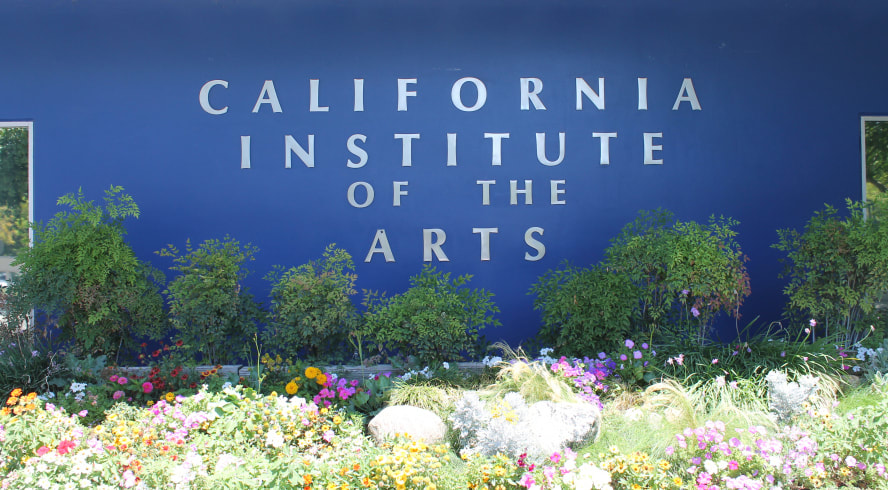|
Body-Mind-Spirit - Inspiration for Writers, Dreamers, and Seekers of Health & Happiness
Last Saturday my husband and I dropped our 16-year-old daughter off at CalArtsfor a month-long program run by California State Summer School for the Arts (CSSSA). We helped her settle into her dorm room, toured the campus, and attended a barbeque and outdoor concert. But the most memorable part of the day was a brief, inspiring talk given by CSSSA’s director, Michael Fields. If his words resonated as deeply with the young thespians, dancers, musicians, visual artists, film and television students, animators, and writers as they did with me, those kids are going to have a great month! I’d like to share a few highlights I found relevant and inspiring. “We provide skills in service to dreams.” I could see the creative hopes and dreams on the faces of teens enrolled in the program, but their parents’ faces were harder to read. How many of them were living their creative dreams? Which ones had set aspirations aside and why? Had new ones taken root? Or were the parents of these young artists living their dreams vicariously through their children? I hoped these parents owned and nourished their dreams, honed skills, and believed in themselves, no matter their ages or area(s) of interest. The word “discipline” shares its root with “disciple”—one who learns. I thought, Wouldn’t it be great if each parent explored the edges of his or her creative life with as much enthusiasm as their kids were about to be encouraged to do in their month at CSSSA?This would require a learning orientation to life, which fosters creativity, not just for artists, but for anyone open to growth. Perhaps one of the greatest skills I know in service to dreams is the understanding that growth takes place at the edges of one’s comfort zone. B.J. Dodge, theater department chair, told students later that day to “train in the place of terror.” The Chinese character for “crisis” is the same as the one for “opportunity.” When we view challenges as opportunities, when we reframe obstacles as blessings, and ask, “What can I learn from this experience?” life becomes one big school. Developing skills in service to one’s dreams is a life-long task—and for an artist, a labor of love.
“Don’t waste time trying to prove you belong here. You do.” Imagine the beauty, power, and magic in just showing up for the purposes of learning. Imagine the freedom of having nothing to prove. In this context there’s no such thing as a mistake because everything one does is grist for the creative mill. Failure does not exist, only opportunities for growth. The mother of a toddler wouldn’t scold her child for stumbling while learning to walk. Falling down is part of the process. And this is true as we attempt to master more difficult tasks in life. Blessed are the students whose teachers understand this—teachers who celebrate effort, initiative, and courage; teachers who know that process rules, and product is excrement of process. From this vantage point, there is never anything to prove. The only failure is not trying, not granting our souls complete and total expression, not letting ourselves do what we have come here to do. “Wherever you stand, be the soul of that place.” This is a quote from Rumi, and I loved that Fields incorporated it into his talk. I wondered how many of the incoming CSSSA students had heard of the great Persian poet. What might it mean to “be the soul” of a place? Fields used this quote as an invitation for students to dig into the curriculum and take advantage of the opportunity before them. To be the soul of a place would require one to stand in the middle of one’s “Soulness.” To be one’s soul—a tall order for adults, as well as kids, but one worth contemplating and practicing. “Show up; pay attention; tell the truth; feed the children; and don’t get too attached to the outcome.” These were Fields’s closing tips for success in the program, which he’d gleaned from Native American wisdom. I wondered how many of the teens understood the truth and depth of those words. It took me decades to learn that showing up is the hardest part as a writer; that telling the truth is an act of liberation which frees the soul; that feeding the children means taking care of your young, but also nourishing yourself, because every adult is “innocent” in the eyes of “God,” or Universal Intelligence. But the best advice was: “don’t get too attached to the outcome.” It’s taken me fifty years to learn that outcomes are not within my control. My job is to show up. God’s job is outcomes. I first learned this lesson years ago as a dance student at Juilliard, and again years later, when I hit an all-time low as a result of getting too attached to writing career outcomes, which didn’t turn out the way I wanted. I almost gave up, almost surrendered my soul. Attaching to outcomes decimates hope and destroys dreams. Did any of those kids know that yet? The room was filled with possibility, creative energy, and hope—not only for the teenagers, faculty, and staff about to embark on a month-long creative journey, but for all travelers everywhere—exploring this vast and sacred school we call life!
0 Comments
Leave a Reply. |
Receive over 80 writing prompts from Where Do You Hang Your Hammock to ignite your creativity, gain clarity, and reach your personal and professional goals! You'll also receive my inspirational monthly blog/newsletter. |
“Where the spirit does not work with the hand there is no art.” —Leonardo da Vinci


